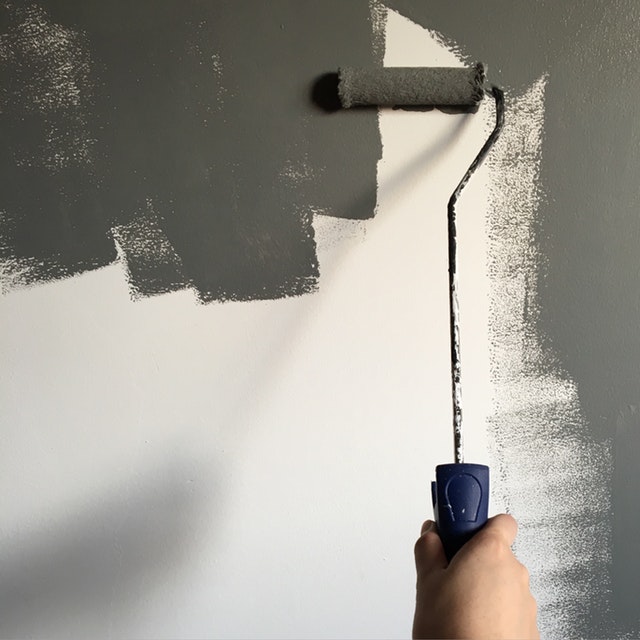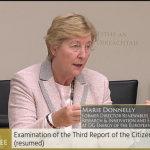The Home Renovation Incentive which refunds the tax paid for home improvement work done on your property will expire at the end of this year, as no news of it was mentioned in Budget 2019 (9th October 2018).
The Help To Buy scheme which lapses in December 2019 has not been extended either, but the Department of Finance could theoretically extend it in next year’s budget. The Department of Finance Press Office didn’t confirm or deny the HRI scheme would lapse at the end of this year but said the Finance Bill, to be published on October 18th, would outline whether or not it was axed. The Home Renovation Incentive is a tax break that offsets the VAT you pay for work carried out in the home against your income tax. As the Department of Finance needs to include provisions for the HRI in the budget it seems the scheme will not be open to new applicants in 2019 but again it could theoretically be revived in next year’s budget. The current situation is that in order to qualify for the HRI, the work must be done by 31 December 2018 unless planning permission is required for the work and in that case it’s the grant of permission that has to be in place by 31 December and work completed by the 31st March 2019. There’s some good news too coming from Budget 2019 for people looking to borrow money to self-build and those who suffered from mica in Counties Donegal and Mayo.Affordable mortgages to widen eligibility criteria
Minister for Housing Eoghan Murphy’s Budget 2019 statement hinted that more people could qualify for the popular Rebuilding Ireland Affordable Home Loan launched in February of this year, and that it might extend to vacant homes in need of refurbishment: “An assessment is currently underway that will consider some inconsistencies in decision making that have been identified, the need to potentially broaden the application of the scheme, as well as the possibility of extending the affordable loan to vacant homes requiring refurbishment,” he said in a press release. At the end of September, the Housing Agency, which is in charge of administering the Rebuilding Ireland Affordable Home Loan said that it had assessed and recommended 1,134 loans for approval, with an average loan amount of roughly €210,000.Defective homes
Minister Murphy announced that a “key priority for the department” is to set up a fund for homeowners suffering from defective concrete blocks in counties Donegal and Mayo. The homeowners suffering from mica have encountered similar issues as those who suffered from pyrite. “The Government approved in principle this morning the development of a grant scheme of financial assistance to support affected homeowners to carry out the necessary remediation works to dwellings in those two counties that have been damaged,” Minister Murphy said in his statement adding that funding would be available from next year. The pyrite fund, meanwhile, will also get a fresh cash injection of €32 million, an increase of €2 million on 2018, to fund the remediation of a further 460 houses. The government created the Pyrite Resolution Board in 2013. The Mica Action Group has been lobbying for a redress scheme similar to the one for pyrite since 2014.No carbon tax
Despite indications from the Taoiseach that he would increase the carbon tax from €20 per tonne to €30 per tonne earlier in the year, the Minister for Finance Pascal Donoghue has left the tax unchanged. The increase in carbon tax would have had the effect of increasing the price of home heating fuel, coal and briquettes as well as petrol and diesel. According to the ESRI’s report published on budget day, entitled Economic and Environmental Impacts of Increasing the Carbon Tax, for a 10 euro increase, the price petrol would increase 2.7 per cent, diesel 3.4 per cent, fuel oil 0.16 per cent, kerosene 1.1 per cent, coal 1.9 per cent and peat 1.4 per cent. Selfbuild Live Belfast is the ultimate showcase for people who are building, extending, improving or simply decorating their home. Selfbuild Live Belfast, 22nd-24th February takes place in the Titanic Exhibition Centre, Belfast.
Selfbuild Live Belfast is the ultimate showcase for people who are building, extending, improving or simply decorating their home. Selfbuild Live Belfast, 22nd-24th February takes place in the Titanic Exhibition Centre, Belfast.

Update November 2018: The National Standards Authority of Ireland has published standards to assess the damage caused by defective concrete blocks to help decide what, if any, remedial work could be carried out. The standard:
- establishes a protocol for assessing and determining whether a building has been damaged by concrete blocks containing certain excessive amounts of deleterious materials (free or unbound muscovite mica, or aggregate with potentially deleterious quantities of pyrite);
- describes methods for establishing the extent of the problem;
- describes the scope of any testing required; and
- categorises buildings, in accordance with this Standard, providing competent persons with guidance on the appropriate measures to be taken.








